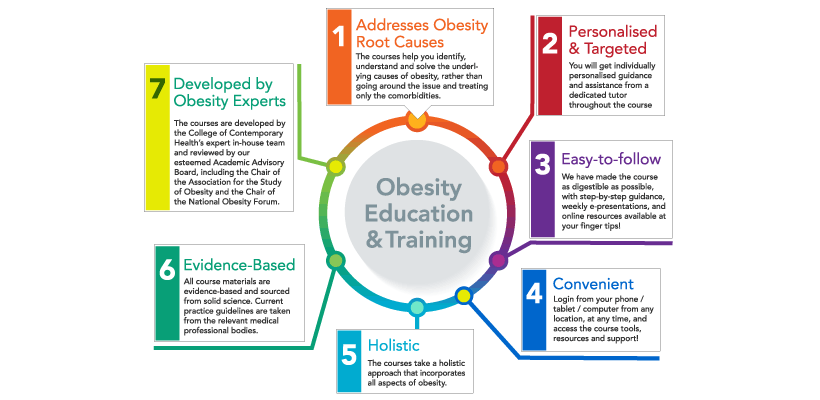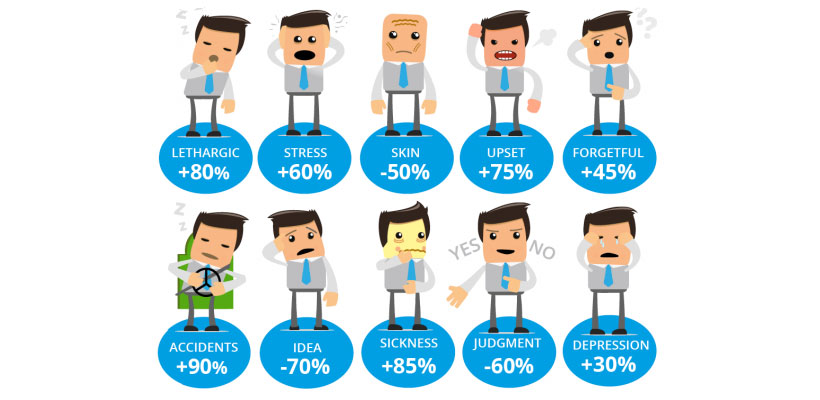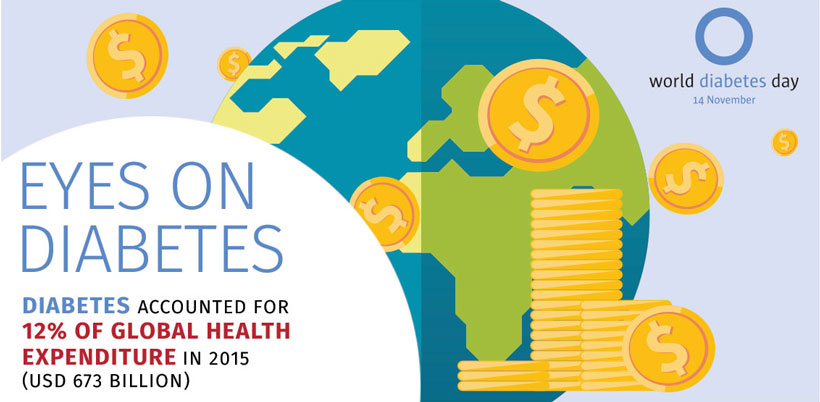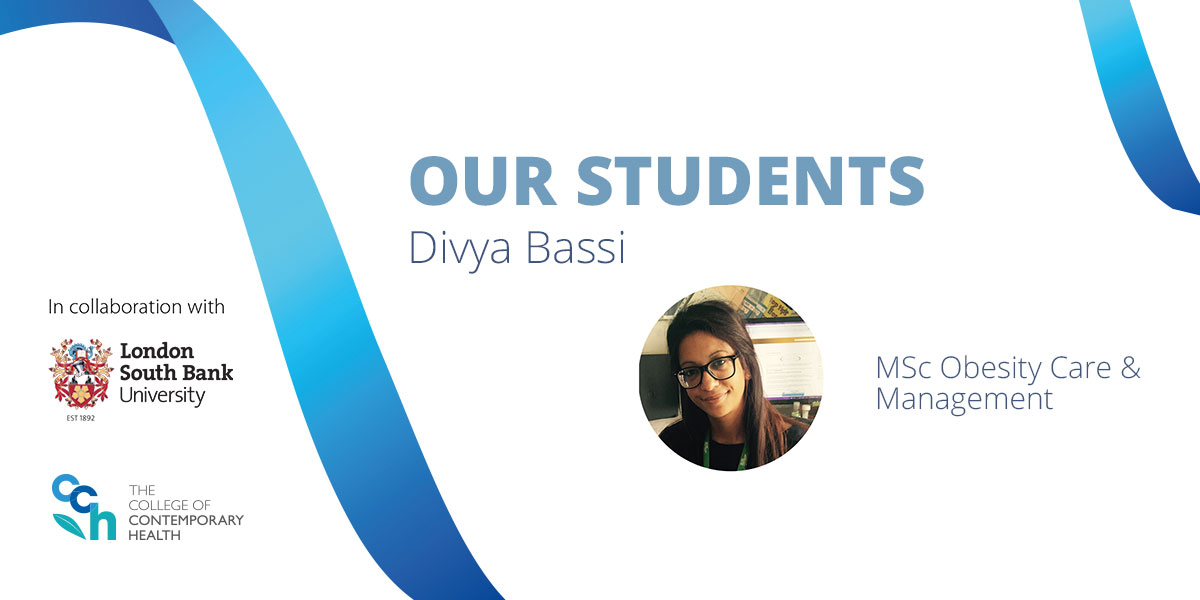Use the code MTM50 at check out to save 50% this Black Friday ONLY!
Please Note: Offer ends Saturday 26 November 2016.

Did you know that being overweight or obese increases the risk of developing 11 different types of cancer? In fact, after not smoking, being a healthy weight is the most important thing people can do to reduce your cancer risk.
As part of the CCH network, you can take advantage of World Cancer Research Fund’s cancer prevention package! – This FREE package will help you to raise awareness of cancer prevention and support people who want to reduce their cancer risk.
The free package includes:
Click here! – to get your free resources and training.
Please note that the package is only available to health professionals based in the UK.
If you have any questions about World Cancer Research Fund’s cancer prevention package please contact them on 020 7343 4200 or informed@wcrf.org

On Monday the 5th of December, the Obesity APPG and guests, including CCH, were invited to meet at the Houses of Parliament in Westminster to discuss the government’s proposed sugar levy. Before opening the floor to questions and comments from the audience, 2 speakers from their respective institutions, described their stance on the levy, what their institutions had previously implemented in regards to public health, and what else needed to happen in order to make this particular public health initiative a success.
The first of the speakers was from Coca-Cola. He described Coca-Cola’s history with reformulation and how the creation of new beverages, such as Diet Coke and Coke Zero, have removed sugar from their ingredients entirely. He also described that without being asked, Coca -Cola had slowly been reducing the sugar content of their regular drinks for the last couple of decades, eliminating tons worth of sugar from the UK’s national diet. He also described how the Diet and Zero versions of their brands now outsell their “regular” counterparts by a ratio of 60 to 40, a concerted effort by Coca-Cola to reduce national sugar consumption. While not entirely opposed to the ban, he thought it was unfair to specifically target soft drinks and not other consumer goods like flavoured milk or juices that contain as much sugar, if not more, than soft drinks, or even food with excessive quantities of added sugar. He stated sugary drinks account for less than 4% of the daily calorie intake in the teenage age group, who are the biggest group of consumers of soft drinks. The point was also made that during the time in which Coca-Cola were reducing their sugar content, without government pressure, obesity in fact rose between 3-4%.
The next speaker was a member of British Retail Consortium (BRC), a representative body for the retail sector in the UK, which encompasses major supermarkets, food-to-go and also clothing retailers. He said that the BRC have a distinct position on many of the elements of the obesity plan, but the main element they were focusing on that day was the voluntary targets around sugar reduction. The BRC representative stated that there needs to be a focus on sugar, but agreed with the Coca-Cola representative that there’s a risk with focusing too much on sugar because it negates the responsibility to potentially focus on other unhealthy nutrients like salt and saturated fats, but recognised the core element of this plan was going to be sugar. Not only did the BRC have concerns about focusing too much on sugar, they also had concerns with the voluntary nature of the sugar reduction targets based on their experience with the public health field. Having a voluntary target means that there was no major reduction in sugar consumption, and from a retailer’s perspective there was a competitive disadvantage as some retailers discovered that they were seeing a fall in sales. The BRC was not totally in favour of mandatory targets, but if the government are going to implement targets, they should be mandatory and not voluntary as they are most effective that way. If you want to have a reduction across the board, you have to have a level playing field and draw a line in the sand. You have to state what the target is, and everyone has got to work towards it or it presents an unfair challenge with those willing to oblige and those who aren’t.
The question was then proposed, how do you think the government could provide better support for teachers and to schools to reduce the childhood obesity rate, and should more focus be placed upon physical activity? The Coca Cola representative suggested that schools provide a mostly healthy balanced diet, and the quality of dietary advice at schools has improved, and it’s when the child is at home or on holidays where they lose their fitness, and they begin to struggle with staying healthy and fit and perhaps more emphasis should be placed on habits at home.
Elaine Wyllie, the founder of the child’s activity initiative The Daily Mile Foundation, spoke about how there was too much emphasis on diet, which she acknowledged was very important, but still not enough emphasis on physical activity. She described how the idea for The Daily Mile was conceived while working as a head teacher in Edinburgh. Elaine noticed that many of the children at the school were unfit and were becoming more overweight as they progressed through primary school. She took a class of students out to the school’s field and many of them were almost instantly out of breath. After a few weeks of physical activity, just running around the school’s yard for 15 minutes, there was a distinct and very noticeable difference in the fitness and performance of students.
The main conclusion that was drawn from the event was that there is no one single way in which to tackle the obesity crisis. The obesity crisis is a problem that has multiple factors and facets that need to be approached in all manner of different ways, but it was mostly a consensus that sugar was certainly a contributor to the crisis, and that the sugar taxes’ implementation, while not perfect, was mostly a good thing.
Read More
We have spoken quite a bit about the need for Obesity Education and Training.
Today, I would like to share with you the top 7 reasons some of our students chose to study Obesity Care and Management with CCH online.
Read More
Did you know that an important consideration when treating a patient with overweight and obesity is, sleep apnoea?
Obesity is a major risk factor for the increased incidence of sleep apnoea. Sleep apnoea is a sleep disorder characterised by pauses in breathing or periods of shallow breathing during sleep.
As a person gains weight, especially in the trunk and neck area, the risk of sleep-disordered breathing increases due to compromised respiratory function. As it disrupts normal sleep, those affected are often sleepy or tired during the day.
Read More
This year’s 2016 Diabetes Professional Care conference was a hugely successful event. Held in London’s Kensington Olympia, many of the diabetic care industry innovators, specialists and thought leaders converged to share their knowledge and spread awareness of this increasingly prevalent and life-changing disease. The second ever instalment of this free-to-attend, CPD accredited exhibition included keynote presentations from NHS England and The Diabetes Think Tank, both of which were thoroughly engaging and informative, as well as many other presenters who demonstrated their passion and vision for the future of diabetes care.
When not attending one of the many talks or discussions over the course of the two days, attendees were given the opportunity to expose themselves to companies, their products, and representatives to get a feel for the field as a whole, covering the full diabetes spectrum from technologies, commissioning, diagnostics and prevention, to paediatrics, primary and secondary care. As well as being a great place for healthcare professionals to learn, the 2016 DPC provided a great chance to build invaluable relationships and network with those who share the same expertise and passion for diabetes care.
CCH made a great showing at the DPC and provided information to the attendees about the importance of education in the fight against diabetes and the best, and most compassionate, ways in which to care for patients. Although CCH is a fully online educational institute, it doesn’t mean we don’t relish the opportunity to meet so![IMG_4502[1]](https://www.contemporaryhealth.co.uk/wp-content/uploads/2015/03/IMG_45021-300x225.jpg) me of our students. Conferences like the 2016 DPC always attract the best and brightest in their field, so it’s no surprise to meet CCH students at an excellent event like this, and this year’s DPC provided us with the opportunity to meet CCH student, Dr. Sandhu. Dr. Sandhu is a GP based in Southall involved with many local charities, but what is most inspiring about her is her commitment to her continued pursuit of knowledge, and her ambition of achieving what’s best for her patients. She demonstrates how learning is something that continues throughout life, especially in today’s rapidly changing world.
me of our students. Conferences like the 2016 DPC always attract the best and brightest in their field, so it’s no surprise to meet CCH students at an excellent event like this, and this year’s DPC provided us with the opportunity to meet CCH student, Dr. Sandhu. Dr. Sandhu is a GP based in Southall involved with many local charities, but what is most inspiring about her is her commitment to her continued pursuit of knowledge, and her ambition of achieving what’s best for her patients. She demonstrates how learning is something that continues throughout life, especially in today’s rapidly changing world.
The great atmosphere and experience of the 2016 DPC will ensure that CCH will eagerly anticipate, and make a strong presence, at next year’s 2017 DPC! We hope to see you there!
Read More
Working with an overweight or obese client can be a daunting challenge. Most fitness professionals are ill-equipped to face the challenge head on because they’ve never been given the proper tools or understanding of their client’s situation. One of the biggest frustrations for your overweight and obese clients is not just losing the weight, but keeping it off once they’ve achieved that goal.
This globally accredited, 8-10 hour online course, prepares fitness professionals for the challenge of working with overweight and obese clients. It provides the tools and comprehensive knowledge required for fitness professionals to assist clients to successful weight-loss and weight-loss maintenance.
Fitness professionals can play a key role in the weight management of their clients; this course gives fitness professionals the confidence to workout and train with overweight and obese clients and significantly grow their client base.
All Making the Move: Working with Overweight Clientsstudents gain access to an extensive ‘fitness prescription toolkit’ that can be used immediately in client sessions.
Become certified in weight management with CCH
Please Note: Offer ends Saturday 26 November 2016.

According to ABC news, the average calorie intake at a Thanksgiving dinner is 4500 calories!
And, if you add your leftover turkey sandwich to the equation, that’s another 450 calories!
In order to burn off 85 calories you have to walk one mile at a brisk pace, so to burn off that incredible Thanksgiving feast, the drinks, and that left over turkey sandwich, you’ll have to walk 60 miles!
Don’t let that discourage you however, as Thanksgiving is a time to enjoy yourself and the company of your friends and family, and reflect on all you are thankful for.
From everyone at CCH, Happy Thanksgiving!

One in two adults currently living with diabetes is undiagnosed. This World Diabetes Day, the International Diabetes Federation are asking: individuals who may be at risk of type 2 diabetes, people living with diabetes, diabetes associations and health professionals to take action to help identify people with undiagnosed type 2 diabetes and those at risk of developing it in the future. The aim of identifying those at risk is to ensure early diagnosis, and therefore early treatment, of diabetes associated complications, such as blindness.
Read More

On Tuesday 01 November 2016, The College of Contemporary Health attended the Great Weight Debate hosted by Southwark Council at Cambridge House.
Paul Stokes, Head of Southwark Public Health, opened the busy meeting by introducing its ultimate goal: to engage with stakeholders and the public in order to find new approaches to tackle obesity. Southwark council, as revealed by Councillor Maisie Anderson, has some of the highest rates of overweight and obesity in the UK. 56% of adults and 46% of children in the borough are either overweight or obese. These percentages put the borough at the top of the UK obesity league tables. The impact of obesity in the borough is devastating.
Therefore, the council has endeavoured to develop a comprehensive ‘Healthy Weight Strategy’ aiming to significantly reduce levels of overweight and obesity by 2020.
Russel Carter, a consultant in Public Health, introduced the strategy, which is focussed on prevention and relies on four key principles:
He reinforced that the strategy should be everybody’s business and that the main objective of this meeting was to discuss the strategy with the various stakeholders and get people engaged and involved.
The strategy is split into the following four parts.
The remainder of the meeting was filled with talks describing examples of some of the current initiatives that implement the measures above.
Sue Amos introduced the benefits of gardening; Sue started the Burgess Park Food Project to work with the local community to increase understanding of healthy fresh food, promote food growing and bring people together. Many studies have shown the positive effects of gardening on people’s health and BMI. In fact, the World Cancer Research Fund suggests that people who engage in 30 minutes of gard ening can burn up to 145 calories.
ening can burn up to 145 calories.
Lee Souter discussed the Healthy Schools Partnership initiative. Lee started his talk by engaging the audience with a lively debate on whether girls or boys were better at sport. The audience concluded that there wasn’t a simple answer and that it depended on a variety of factors.
The program aims to invest in educating children in their formative years to prevent suffering, reduce inequality, create healthy and productive adults, and deliver social and economic dividends to the nation. So far there have been numerous achievements including Comber Grove school (Silver Healthy School) and Robert Browning school (Gold Healthy School).
The next talk was by Jane Love who introduced, the UNICEF baby friendly initiative. The initiative supports mothers to be able to initiate and sustain exclusive breastfeeding for 6 months and ensure the timely introduction of adequate, and safe, complementary foods with continued breast feeding of up to two years or beyond. But why does breastfeeding matter? According to, Jane Love, it saves lives, improves health, cuts costs and is associated with a 13% reduction in obesity.
Finally, Dr Zoe Williams spoke about how obesity does not affect all groups equally and went on to discuss what is available in Southwark for obesity prevention and management. There are a number of Tier 2 services and a Tier 3 service is in development. Southwark does also have access to two hospitals that offer bariatric surgery (Tier 4).
In fact, Southwark is the first borough in South East London to be creating a Tier 3 Service. The service will apply a multidisciplinary, clinically led team approach including: nutrition, physical activity and psychological components.
A study done on Southwark patients, or service users, as they preferred to be called, revealed that patients thought that there was a great need for NHS weight management services, and that they were often put off by commercial weight loss programs. They praised the fact that everything would be under one roof and were keen for a self-referral option.
Finally, as part of getting everyone involved, there were two workshops for the attendees where they were asked what else could be done to strengthen the strategy. The main take home messages from these workshops were, that since obesity is strongly linked to inequalities, a targeted approach to those suffering inequalities, and the need for training of healthcare professionals, was echoed across the room.
The Great Weight Debate is a Healthy London Partnership initiative and everyone can be involved.
Please visit their website and spend 2 minutes completing a survey on Childhood Obesity.
Read More

The Government’s long-awaited plan to reduce the staggeringly high levels of children’s obesity across the UK was published, following a number of delays, in August 2016. Many felt that the 13-page plan had been significantly watered down and lacked substance. It was also felt that by publishing the plan during the government’s summer recess that it would escape the attention of the media but given the importance of the childhood obesity plan its lack of substance drew widespread criticism and scrutiny.
On Monday 17 October the All Party Parliamentary Group for Adult and Childhood Obesity held a meeting, chaired by Maggie Throup MP, to discuss the Childhood Obesity Plan. CCH was delighted to attend this meeting and hear the views of experts on the matter.
All of the experts agreed that the published plan was disappointing and that there were glaring omissions.
Professor Susan Jebb opened the discussion by mentioning that the biggest strength of the Childhood Obesity Plan was that it has put the matter of obesity back on the agenda. She then went on to discuss the shortcomings of the plan. The main one being the lack of an advertising ban. Furthermore, Professor Jebb insisted that in tackling this problem we cannot only focus on children, but we also need to focus on treatment for all generations just as much as we need to focus on prevention.
Jebb opened the discussion by mentioning that the biggest strength of the Childhood Obesity Plan was that it has put the matter of obesity back on the agenda. She then went on to discuss the shortcomings of the plan. The main one being the lack of an advertising ban. Furthermore, Professor Jebb insisted that in tackling this problem we cannot only focus on children, but we also need to focus on treatment for all generations just as much as we need to focus on prevention.
Malcolm Clark continued the conversation and discussed how the common agricultural policy needs to be reviewed, with giving farmers incentives making healthier products less costly and more achievable. He also mentioned that the school food plan should be reviewed.
Read More
Diabetes is one of the fastest growing health threats in the UK, with over 4 million people living with the condition. With this figure only set to rise, the show offers healthcare professionals and practitioners the opportunity to update their knowledge of key suppliers, cutting edge technologies and solutions for the future of effective diabetes management, care and prevention.
CPD Accredited Conference Programme
Diabetes Professional Care will host a seven stream programme, covering the full diabetes spectrum from technologies diagnostics and prevention to commissioning, paediatrics and primary & secondary care.
 Visitors will, for the first time ever, be able to see Jonathan Valabhji, National Clinical Director for Obesity & Diabetes at NHS England and Dr Partha Kar, Associate National Clinical Director for Diabetes at NHS England take to the stage together, to present one of the show’s hotly anticipated keynote sessions. Valabhji will discuss ‘Diabetes and the NHS in England in November 2016’, while Kar will conclude by looking at ‘The art of the possible’.
Visitors will, for the first time ever, be able to see Jonathan Valabhji, National Clinical Director for Obesity & Diabetes at NHS England and Dr Partha Kar, Associate National Clinical Director for Diabetes at NHS England take to the stage together, to present one of the show’s hotly anticipated keynote sessions. Valabhji will discuss ‘Diabetes and the NHS in England in November 2016’, while Kar will conclude by looking at ‘The art of the possible’.
In a major show coup, Beverley Bryant, Director of Transformation at NHS Digital, will be discussing how new technologies are going to change the face of diabetes. Driven by the need to innovate, Bryant has been crucial in the movement towards making the NHS paperless, looking at the transformative powers that technology has to offer. For those who rely on technology or feel more faith should be put into it, this session is not to be missed.
Samantha Jones, Director, New Models of Care at NHS England will also be presenting on day one, analysing new models of care in diabetes, whilst Pauline Latham MP, Chair of the Diabetes Think Tank will feature in the afternoon session on day two.
|
To register for free entry to the conference and exhibition please visit www.diabetesprofessionalcare.com |
Dedicated Streams
Within the Primary and Secondary Care stream Debbie Hicks, Nurse Consultant – Diabetes from Enfield & Haringey Mental Health Trust & Co-chair – TREND-UK and Chair of FIT UK, will take a look at the learning curves experienced within diabetes care since the seventies. Hicks will also be running an interactive session on lipohypertrophy, which will see patients being treated live in one of the theatres, whilst educating visitors on how to identify this accumulation of fat underneath the surface of the skin, caused by multiple injections.
Dr David Haslam, GP and Chair of the National Obesity Forum, will be considering the scale of Diabetes in the UK and questioning how we should best address prevention.
Those interested in how technology can be used to combat diabetes, should look no further than the talk by the returning Dr Partha Kar. He will discuss ‘Diabetes & Technology: Overhyped or a necessity?’, while Sue Wales will continue with the theme, exploring how using innovations and technology can effectively improve diabetes control.
Exhibitors
As well as an action packed conference programme, Diabetes Professional Care 2016 has a wealth of innovative exhibitors signed up who will be sharing the very latest technologies and solutions, for the continued improvement and development of patient care in the diabetes field. This includes Hicom, Ascensia Diabetes Care, Cellnovo, Neuropad, Advanced Therapeutics, METEDA, Novo Nordisk, Siemens Healthineers, Abbott and Diasend.

Because LSBU are always keen to hear about the real impact LSBU is delivering with their partners, we’ve met with one of the first students enrolled on the course. Divya Bassi is a Macmillan Support Worker and is studying towards an MSc in Obesity Care and Management at CCH.
Hi Divya, thank you for taking the time to chat with us. Why the interest in obesity studies?
I currently work for the Macmillan South West Aftercare team. We offer long term specialist support and advice to childhood cancer survivors. Within clinic, we have a unique opportunity to work with patients to promote healthy lifestyle choices to improve overall health and wellbeing. This cohort can encounter other health care issues as a result of their treatment which can be further perpetuated by an unhealthy lifestyle. Maintaining a healthy weight is crucial, and obesity prevention is an area I feel particularly passionate about.
I feel that the learning from this course fed directly into improving my practice with patients. It offered me the opportunity to liaise with other health care professionals within weight management and also presented practical strategies that covered the holistic management of this complex healthcare issue.
And why did you choose the CCH?
To my knowledge, this institution was the only one that offered Master’s level work in obesity management via distance learning.
So, what did you think of the online format?
The online format is easy to use and enables the user to control their learning. I could access the forum when convenient for me and around my other professional / social commitments. There was always someone available to help if I came across any issues with the platform and there was a wide range of resources available to support my learning.
Do you feel the course helped to improve your practice with patients?
Absolutely. I feel that the learning from this course fed directly into improving my practice with patients. It offered me the opportunity to liaise with other health care professionals within weight management and also presented practical strategies that covered the holistic management of this complex healthcare issue.
Would you recommend the course and CCH?
Yes, I would definitely recommend the course to other professionals within obesity management. The flexible format and opportunity to share learning with other professionals was great. Working with patients around their weight management is complex, and the training that I have received through CCH has been invaluable.
Lastly, before you go, what is your mission as a healthcare professional?
I feel passionate about endorsing a holistic approach to the current obesity epidemic which utilises a range of strategies around a patient centred approach. In my experience, considering all of the multi-factorial triggers that can contribute to weight gain is key. I strive to continue learning within this area of expertise so that I can support patients in the best way possible to achieve successful behaviour change. I also feel strongly about the need for more preventative strategies around weight management, especially for the younger generations. The healthier choice should be the easy choice, and I hope to contribute to the continued mission to prevent obesity in children and young people.
